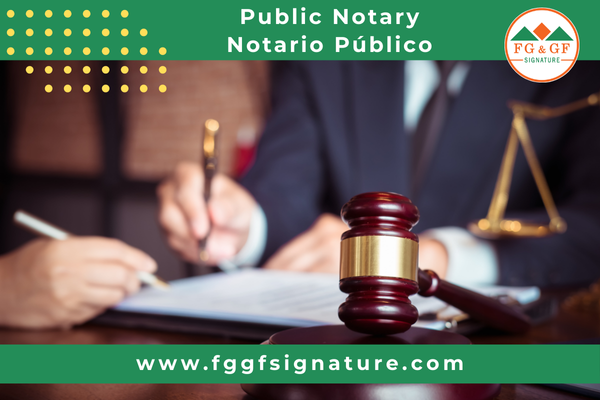Misunderstanding the Difference Between a Lawyer and a Notary Public in Florida: Common Pitfalls and Serious Consequences
Imagine this: You’re a recent immigrant in Florida, excited about starting a new life, but tangled in the web of immigration paperwork. You spot a sign for a “notario público” offering help with forms and advice—at a fraction of what a lawyer might charge. It seems like a no-brainer. But fast-forward a few months, and your application is denied, you’re facing deportation proceedings, and you’ve lost hundreds of dollars. This scenario plays out far too often in Florida, where confusing a notary public with a lawyer can lead to devastating outcomes.
In this article, we’ll break down the key differences between lawyers and notaries in Florida, explore why misunderstandings arise, and highlight the real-world problems that can result. Whether you’re dealing with immigration, real estate, or everyday legal documents, knowing who to turn to is crucial. Let’s dive in.
What Is a Lawyer in Florida?
Lawyers, also known as attorneys, are highly trained professionals licensed to practice law. In Florida, becoming a lawyer is no small feat. It typically requires:
- Earning a bachelor’s degree from an accredited college.
- Scoring well on the Law School Admission Test (LSAT).
- Completing three years of law school and graduating with a Juris Doctor (J.D.) degree.
- Passing a rigorous background check for moral character.
- Successfully completing the Florida Bar Exam, which covers ethics, state-specific laws, and federal topics.
Once licensed by The Florida Bar, lawyers can provide legal advice, draft complex documents, represent clients in court, and handle negotiations. They’re bound by strict ethical rules and can face disciplinary action, including disbarment, if they fail to uphold standards. This extensive training ensures they can navigate the nuances of the law to protect your rights.
What Is a Notary Public in Florida?
A notary public, on the other hand, has a much more limited role. In Florida, notaries are appointed by the Governor and regulated by the Department of State. To become one, you need to:
- Be at least 18 years old and a legal resident of Florida.
- Complete an education course (for first-time applicants).
- Submit an application fee, post a bond, and have a witness attest to your good character.
- Take an oath of office.
Notaries are essentially impartial witnesses. Their primary duties include verifying identities, administering oaths, certifying signatures on documents, and performing tasks like acknowledging affidavits or solemnizing marriages. However, they are strictly prohibited from giving legal advice, drafting legal documents, or representing anyone in legal matters. Florida also has “civil law notaries,” who must be licensed attorneys with additional certification, allowing them broader powers like authenticating international documents—but standard notaries don’t have this authority.
Importantly, notaries must include disclaimers in non-English ads stating they’re not attorneys and can’t offer legal advice or accept fees for it.
While some lawyers are also notaries, the reverse isn’t true — a notary isn’t automatically a lawyer. Notaries act as neutral facilitators to prevent fraud in document signings, not as legal experts.
Common Misunderstandings: Why the Confusion Happens
One of the biggest sources of mix-ups stems from cultural and linguistic differences. In many Latin American countries, a “notario público” is a highly qualified lawyer who can handle legal transactions, draft contracts, and provide advice. But in Florida (and the U.S. generally), the term simply means a public notary with limited powers. This leads immigrants, particularly from Hispanic communities, to seek notaries for complex issues like immigration forms, wills, or deeds, assuming they’re getting full legal support.
Other misconceptions include:
- Believing notaries can prepare or fill out legal forms (e.g., immigration petitions) while claiming expertise.
- Thinking a notary’s stamp makes a document legally binding in all contexts, ignoring the need for proper legal drafting.
- Assuming notaries can charge for “legal services” like advising on contracts or real estate.
In immigration contexts, this confusion is rampant. Notaries might advertise as “immigration consultants” or use misleading titles, preying on vulnerable people.
The Problems and Serious Consequences of This Misunderstanding
Confusing the two roles doesn’t just lead to inconvenience—it can cause financial ruin, legal troubles, and life-altering setbacks. Here’s why:
For the Public:
- Invalid or Faulty Documents: If a notary drafts or advises on a document they’re not qualified for, it could be rejected by courts or agencies. For example, a poorly prepared immigration form might lead to application denials or even trigger deportation proceedings. In one common scam, notaries charge exorbitant fees for “help” that does nothing or worsens the situation.
- Financial Loss: Victims often pay hundreds or thousands for services that are worthless or harmful. Florida has seen cases where notaries promise quick immigration fixes that don’t exist, leaving clients out of pocket and in legal limbo.
- Irreversible Harm: Bad advice can accelerate removal processes under federal immigration law. Competent legal counsel is essential, as rights under the Immigration and Nationality Act are at stake.
For Notaries Engaging in Unauthorized Practice of Law (UPL):
- Florida treats UPL as a serious offense. Notaries who cross the line face felony charges, with penalties including up to five years in prison, five years of probation, and fines up to $5,000. Their commission can be revoked, and they may face civil lawsuits.
- Recent laws, like House Bill 915 signed in 2025, crack down on misleading ads targeting immigrants, imposing stricter rules on notaries to prevent fraud.
Conclusion: Protect Yourself by Knowing the Difference
In Florida’s diverse and fast-paced legal landscape, misunderstanding the roles of lawyers and notaries can have dire consequences—from wasted money to shattered dreams. Always verify credentials: Check if someone is a licensed attorney through The Florida Bar’s website, and remember that notaries are witnesses, not advisors.
If you need legal help, consult a qualified lawyer. Organizations like legal aid societies or immigration nonprofits can provide affordable options. By staying informed, you can avoid these pitfalls and ensure your legal matters are handled properly.


